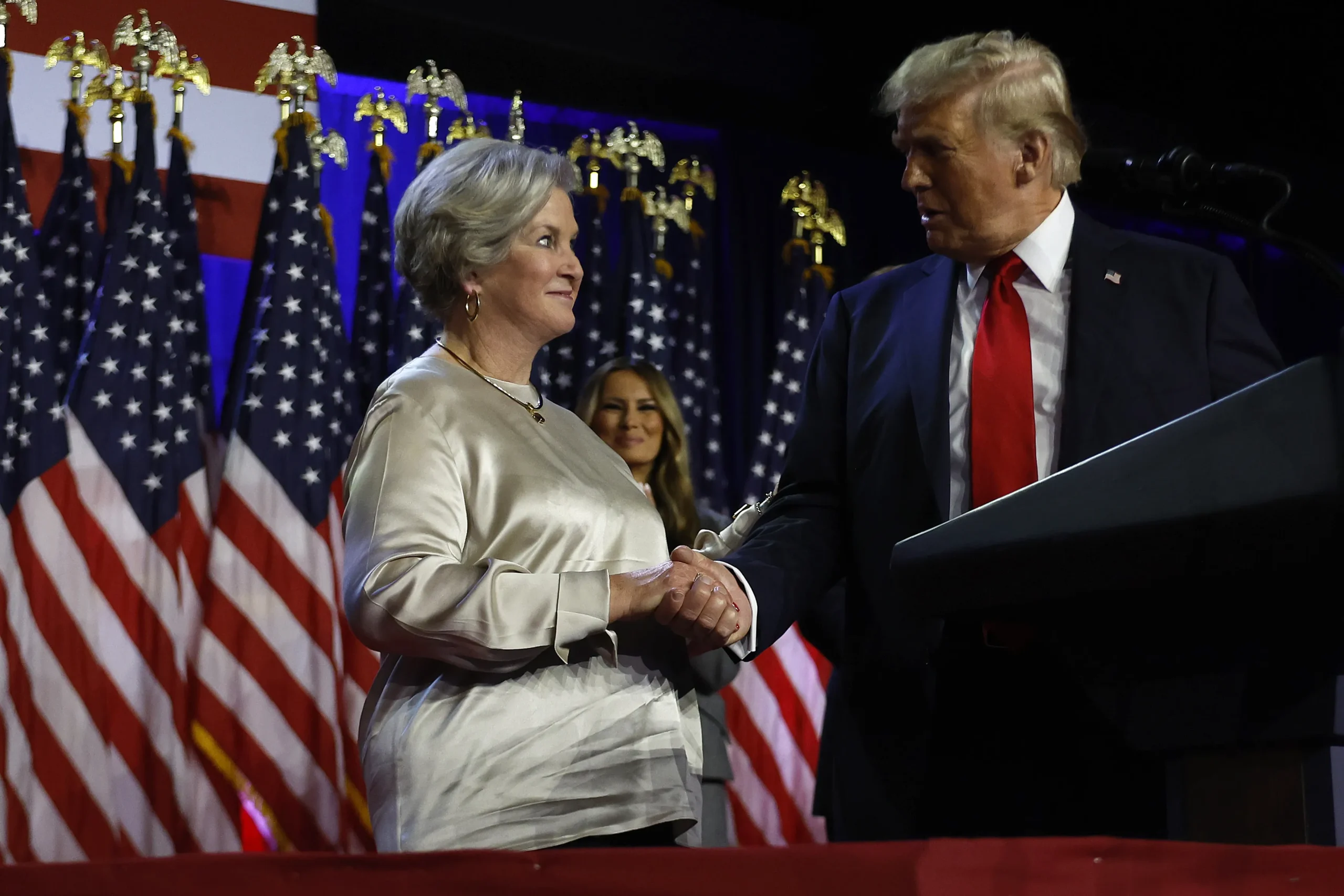Susie Wiles: Trump’s Game-Changer as First Female Chief of Staff
In a historic move, Susie Wiles has been appointed as the first female Chief of Staff in U.S. history for Donald Trump’s administration. This landmark decision not only marks a significant milestone in American politics but also highlights the evolving role of women in leadership positions within the Republican Party. Wiles’ appointment comes on the heels of her instrumental role in Trump’s successful 2024 campaign, where she emerged as a key strategist and advisor.
Wiles has a rich history in Republican politics, boasting over four decades of experience. She began her career as an aide to former Rep. Jack Kemp and played a vital role in Ronald Reagan’s 1980 presidential campaign. Her extensive background includes managing campaigns for prominent figures such as Florida Governor Ron DeSantis and Senator Rick Scott. This wealth of experience has positioned her as a formidable force in the political arena, making her a natural choice for the Chief of Staff role.
The Strategic Role in Trump’s Campaigns
Wiles’ influence in Trump’s political resurgence cannot be overstated. She was credited as one of the most significant voices behind his successful 2024 campaign, having previously managed operations for his 2016 and 2020 campaigns, particularly in Florida. This state has been pivotal for Trump’s electoral victories, and Wiles’ strategic acumen has played a crucial role in securing these wins.
In her new position, Wiles is expected to leverage her experience to navigate the complexities of the Trump administration. Known for her ability to keep fringe voices at bay, she has earned the trust of Trump and his inner circle. Her reputation as the “Ice Maiden” reflects her preference for operating behind the scenes while effectively managing complex political dynamics. Trump himself has described her as “tough, smart, innovative,” and “universally admired,” underscoring her importance in his administration.
Demands for Authority
Before accepting the Chief of Staff position, Wiles reportedly sought assurances from Trump regarding her authority to control access to the Oval Office. This demand highlights her desire for a more structured environment compared to his previous administration, which was often characterized by chaos and high turnover. Wiles’ insistence on having control over access is indicative of her strategic mindset and her commitment to creating a more organized and efficient administration.
Bipartisan Relations and Challenges Ahead
Despite her close ties to Trump, Wiles is noted for maintaining cordial relationships across party lines. This ability to foster bipartisan relations may prove beneficial in easing tensions within a polarized political landscape. However, the Chief of Staff position historically has a high turnover rate, with several individuals serving during Trump’s first term. Observers are curious about how long Wiles will maintain her role, given this context.
In his victory speech, Trump publicly acknowledged Wiles’ contributions, highlighting her importance to his campaign and expressing confidence in her capabilities as Chief of Staff. This endorsement not only solidifies her position but also raises questions about the future governance style of the Trump administration. As Trump continues to embrace aggressive political themes, Wiles’ leadership is seen as a stabilizing force within an often tumultuous environment.
Future Governance Implications
Wiles’ appointment as the first female Chief of Staff is a significant development in American politics, particularly within the Republican Party. Her extensive experience and strategic prowess are expected to shape the administration’s approach moving forward. As she steps into this pivotal role, the political landscape will be closely monitored for signs of change and stability.
In conclusion, Susie Wiles’ appointment as Trump’s Chief of Staff represents a historic moment in U.S. politics. Her extensive background, strategic acumen, and ability to navigate complex political dynamics position her as a game-changer in the Trump administration. As she takes on this new role, the implications for governance and party dynamics will be significant, making her a key figure to watch in the coming months.
With her leadership, the Trump administration may find a new balance between aggressive political strategies and the need for stability, potentially reshaping the future of the Republican Party. As Wiles embarks on this journey, her influence will undoubtedly be felt across the political spectrum, making her one of the most important figures in contemporary American politics.






Leave a Comment